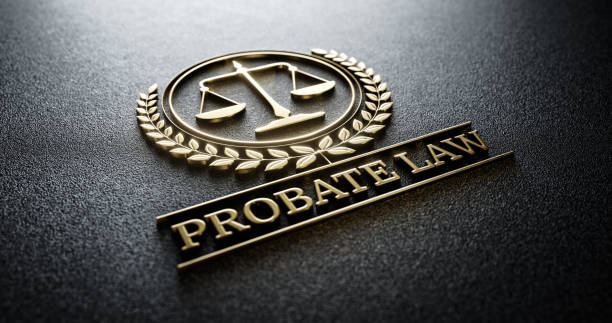In Texas, pets are more than animals—they’re family. They share homes, routines, and sometimes even the emotional center of a person’s life. It’s why some people start wondering: “Can I leave my house to my dog?” While it might seem eccentric or humorous, this scenario raises a surprisingly serious legal question: can you actually leave property to a pet in Texas?
The short answer is no — not directly. In Texas, pets are legally personal property. That means they cannot own assets, inherit money, or hold title to real estate in their own name. Yet, Texans are nothing if not creative when it comes to estate planning, and many have found ways to ensure their furry companions live comfortably long after they’re gone. This is where pet trusts, caretaker designations, and careful legal drafting come in.
In a state where ranches, oil royalties, and family land can span generations, the question of what happens to a pet after its owner dies can be more than sentimental. It’s about control, legacy, and the deeply human desire to protect what (and who) we love. But when it comes to leaving a house or money to an animal, the law draws some firm lines — with loopholes that clever planners can use.

This article explores how Texas courts treat pets in wills, what loopholes exist for pet inheritance, and why these unconventional estate plans can sometimes lead to surprising legal battles.
Pets as Property: Why Texas Law Draws the Line
To understand why you can’t leave your house directly to a pet, you have to start with how the law classifies animals. In Texas, pets are personal property — the same category as furniture, jewelry, or vehicles. They can be owned, transferred, or sold, but they cannot legally own anything themselves.
That means if you write in your will, “I leave my home to my dog Bella,” the gift automatically fails. Bella cannot hold title to real estate or manage an inheritance. Instead, that property would fall back into the rest of your estate and be distributed according to the other terms of your will or Texas intestacy laws if no instructions exist.
Courts have dealt with strange wills before — from owners trying to name pets as heirs to eccentric Texans leaving their fortunes to inanimate objects. While judges often recognize the emotional motivation behind such bequests, the law leaves little room for interpretation. Pets can benefit from property, but they cannot legally receive or manage it.
Still, this hasn’t stopped determined pet owners. Over the years, estate planners have created legal tools to bridge the gap between affection and the law.
Pet Trusts and Caretakers: The Legal Loophole That Works
Texas law allows you to set up what’s known as a “pet trust.” This is the closest legal substitute for leaving your house or assets directly to an animal. A pet trust is a binding arrangement that names a trustee — a trusted individual or institution — to manage assets for the care of your pet after you die.

Under a properly drafted pet trust, you can specify how much money should go toward food, veterinary care, housing, and even lifestyle details. Some pet owners have gone as far as dictating the brand of food or frequency of grooming visits. While that level of detail might sound excessive, courts have upheld it as long as the trust isn’t “capricious” or impossible to enforce.
If you want your pet to continue living in your home after your death, the trust can fund property expenses like taxes and maintenance. The trustee would oversee these payments while the designated caretaker — the person actually living with and caring for the pet — fulfills the daily responsibilities.
For example, a pet owner might create a trust that says: “My trustee shall maintain my home for my dog Max as long as he lives. Upon Max’s death, the property shall pass to my niece, Emily.” In this case, Max isn’t inheriting the house. However, the home is legally maintained for his benefit. When Max dies, the trust ends, and the property transfers to the next named heir.
Texas courts recognize this structure because it satisfies the legal principle that assets must be managed by humans, not animals. However, pet trusts come with their own complexities. They must comply with Texas Estates Code provisions governing non-charitable purpose trusts, and courts can reduce excessive funding if it vastly exceeds what’s reasonable for the animal’s care.
When Pet Trusts and Human Greed Collide
Not all pet inheritance plans go smoothly. Some of the most famous cases of “pet wealth” have sparked bitter legal disputes — often between caretakers, family members, and estate executors.
Even in Texas, where independent probate courts handle these matters with strict scrutiny, disputes often arise when large sums are involved. A pet trust that holds a house worth hundreds of thousands of dollars or includes extensive maintenance expenses can trigger jealousy and litigation.

A common scenario unfolds like this: an elderly pet owner creates a will that funds a trust for their animal’s care. The chosen caretaker or trustee receives access to the funds to maintain the property and meet the pet’s needs. After the owner’s death, relatives discover the arrangement and file objections, arguing the trust is excessive or fraudulent.
Courts then step in to determine whether the trust reflects the deceased’s intent and whether the amount set aside is reasonable. Texas judges have the power to reduce the trust’s funding if it’s far beyond the pet’s actual needs, redirecting the excess to the estate’s other heirs.
This tension between human heirs and pet caretakers reflects a deeper truth about estate law: even when the law allows you to protect your pet, it also protects the rights of legitimate heirs.
Another layer of complexity appears when the caretaker themselves mismanages or misuses trust funds. Because the trustee controls the money, there’s always a risk that funds meant for the pet’s well-being end up paying for personal expenses. To prevent this, many estate planners recommend appointing a separate enforcer — someone authorized to monitor the trustee’s actions and hold them accountable in court.
Without that oversight, even a well-drafted pet trust can fail.
Why Texans Should Think Carefully Before Leaving Property for Pets
While the idea of providing for a pet after death is noble, it also demands realism. A trust that allows a pet to stay in your house indefinitely might sound comforting, but it comes with significant challenges. Houses require upkeep, taxes, and utility payments. Unless the trust is adequately funded, the property can quickly become a financial burden.
Moreover, choosing the right caretaker and trustee can make or break the arrangement. The person who loves your pet most may not be financially responsible enough to manage the assets. Conversely, someone who’s excellent with money may not have the time or patience for pet care. The key lies in balance — selecting individuals who will genuinely respect both your pet and your wishes.
From a legal standpoint, estate planners often suggest pairing a pet trust with other estate tools, like durable powers of attorney or advance directives, especially for elderly or ill owners. This ensures continuity of care if you become incapacitated before your death.
In practice, courts view pet trusts as temporary, purpose-driven arrangements rather than long-term wealth transfers. Once the pet dies, any remaining assets usually revert to human beneficiaries or charitable causes.
Even so, the desire to ensure a pet’s comfort after an owner’s death reflects an enduring human instinct — loyalty beyond life. Texans who own ranch animals, show dogs, or companion pets often see them as family. While the law can’t grant pets legal personhood, it offers enough flexibility to mirror the emotional bond within the boundaries of property law.
Conclusion
So, can you leave your house to a pet in Texas? Not exactly. But you can make sure your pet benefits from it — and lives out its days with dignity and care. By using tools like pet trusts, appointing reliable caretakers, and drafting clear estate instructions, Texans can navigate the fine line between love and legality.
The courts may see pets as property, but estate law has evolved to recognize that they occupy a unique emotional space in people’s lives. What matters most is structure: naming the right trustee, funding the trust appropriately, and ensuring every clause holds up under scrutiny.
Because in Texas, a promise to protect your pet isn’t just sentimental — it’s a legal act of love that, when done right, can stand the test of time.
In the end, the law won’t let your pet “own” your home, but it will let your heart’s intentions find a legal way to keep that home warm and safe for the one companion who never left your side.








